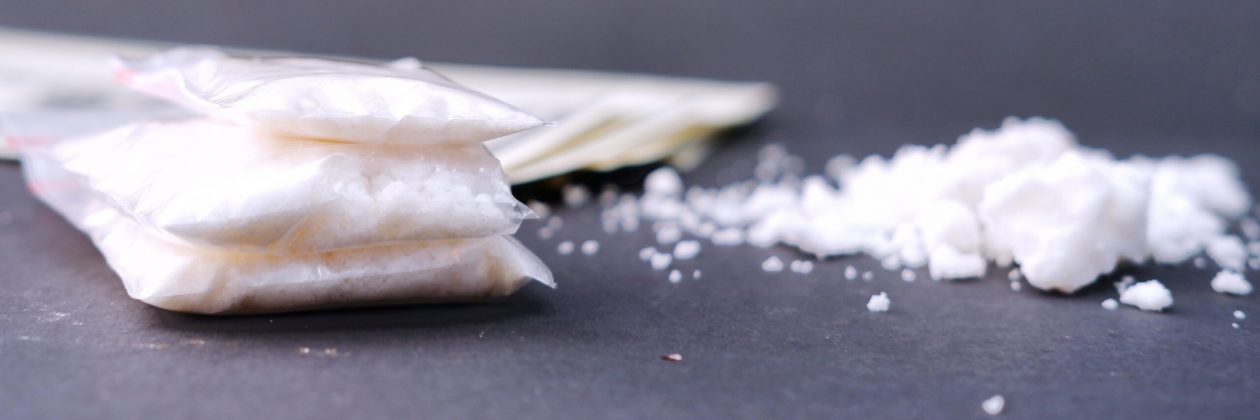Prague, the capital city of the Czech Republic, has been facing a significant issue with Columbian cocaine trafficking and consumption․ This problem has been persistent, with the city being a steady pick for traffickers due to its strategic location and demand for the drug․
History of Cocaine in Prague
Cocaine has been present in Prague for several decades, with the first cases of trafficking and consumption reported in the 1990s․ However, it was not until the early 2000s that the problem began to escalate, with the city becoming a major hub for Columbian cocaine․
Reasons for Prague’s Appeal
There are several reasons why Prague has become a steady pick for Columbian cocaine traffickers․ One of the main reasons is the city’s location, which makes it an ideal transit point for drugs being smuggled from South America to other parts of Europe․ Additionally, Prague has a well-developed transportation network, with several major airports and seaports, making it easy for traffickers to bring in large quantities of cocaine․
-demand and Consumption
The demand for cocaine in Prague is also a significant factor contributing to the city’s appeal to traffickers․ The city has a large and affluent population, with many people willing to pay high prices for the drug․ Furthermore, Prague’s vibrant nightlife scene, with many bars, clubs, and restaurants, creates an environment that is conducive to cocaine consumption․
Efforts to Combat Trafficking
Despite the challenges, the Czech authorities have been working to combat cocaine trafficking and consumption in Prague․ The police have increased patrols and surveillance in areas known to be hotspots for drug activity, and have also launched several high-profile operations to dismantle trafficking networks․ Additionally, the government has implemented education and awareness programs to reduce demand and prevent drug-related crimes․
Impact on Local Communities
The presence of Columbian cocaine in Prague has had a significant impact on local communities, with many residents expressing concerns about the safety and well-being of their neighborhoods․ The increased availability of the drug has led to a rise in drug-related crimes, such as theft and violence, which has eroded trust in the community and created a sense of fear among residents․
Health Consequences
The health consequences of cocaine use are also a major concern, with many users experiencing serious physical and mental health problems․ Cocaine use can lead to heart problems, respiratory issues, and increased risk of overdose and death․ Furthermore, the drug’s highly addictive nature means that many users become trapped in a cycle of dependence, which can have devastating consequences for their personal and professional lives․
Law Enforcement Efforts
In response to the growing problem of Columbian cocaine in Prague, law enforcement agencies have stepped up their efforts to disrupt trafficking networks and bring perpetrators to justice․ The police have been working closely with international partners to share intelligence and best practices, and have also increased their use of surveillance and undercover operations to catch traffickers in the act․
Collaboration with International Partners
Collaboration with international partners is crucial in the fight against Columbian cocaine trafficking in Prague․ The Czech authorities have been working closely with counterparts in countries such as Colombia, Peru, and Brazil to share intelligence and coordinate efforts to disrupt trafficking networks․ This cooperation has led to several high-profile arrests and seizures, and has helped to disrupt the flow of cocaine into the city․
Future Directions
Looking to the future, it is clear that a comprehensive and multi-faceted approach is needed to address the problem of Columbian cocaine in Prague․ This will require continued collaboration between law enforcement agencies, international partners, and local communities, as well as a commitment to addressing the root causes of demand and providing support to those affected by the drug․ By working together, it is possible to reduce the influence of Columbian cocaine in Prague and create a safer, healthier, and more prosperous city for all․
Prevention and education are key components of any strategy to address the problem of Columbian cocaine in Prague․ The city’s schools and community organizations have been working to educate young people about the dangers of cocaine use, and to provide them with the skills and support they need to make positive choices․ Additionally, the authorities have been working to provide treatment and support to those who are struggling with addiction, and to help them to overcome their dependence on the drug․
Community-Based Initiatives
The community has also been playing a crucial role in addressing the issue of Columbian cocaine in Prague․ Local organizations and resident groups have been working together to create community-based initiatives that aim to prevent drug use and provide support to those affected by it․ These initiatives include outreach programs that provide counseling and guidance to young people, as well as support groups for families and individuals struggling with addiction․
Economic Impact
The economic impact of Columbian cocaine on Prague has also been significant․ The city’s economy has been affected by the influx of illegal drugs, with many businesses and individuals suffering as a result․ The cost of law enforcement efforts to combat trafficking and consumption has also been high, with significant resources being diverted to address the issue․ Furthermore, the loss of productivity due to drug-related illnesses and deaths has had a major impact on the city’s workforce and economy․
International Cooperation
International cooperation has been essential in addressing the issue of Columbian cocaine in Prague․ The Czech government has been working closely with international partners to share intelligence and coordinate efforts to disrupt trafficking networks․ This cooperation has led to several high-profile arrests and seizures, and has helped to reduce the flow of cocaine into the city․
Challenges Ahead
Despite the progress made, there are still many challenges ahead in addressing the issue of Columbian cocaine in Prague․ The city’s geographic location makes it a prime target for traffickers, and the demand for cocaine remains high․ Additionally, the complexity of trafficking networks makes it difficult to disrupt and dismantle them․ However, with continued international cooperation and community-based initiatives, it is possible to reduce the influence of Columbian cocaine in Prague and create a safer, healthier, and more prosperous city for all․
Based on the analysis of the issue, several recommendations can be made to address the problem of Columbian cocaine in Prague․ These include:
- Increasing international cooperation to share intelligence and coordinate efforts to disrupt trafficking networks
- Implementing community-based initiatives to prevent drug use and provide support to those affected by it
- Enhancing law enforcement efforts to disrupt and dismantle trafficking networks
- Providing education and awareness programs to reduce demand and prevent drug-related crimes
- Supporting treatment and rehabilitation programs for those struggling with addiction
The issue of Columbian cocaine in Prague is a serious and complex problem that requires a comprehensive and coordinated response․ By working together, it is possible to reduce the influence of the drug in the city and create a safer, healthier, and more prosperous community for all․ It is essential to continue to monitor the situation and adjust strategies as needed to ensure that the city remains a vibrant and thriving place to live and visit․






I found this article to be very informative and insightful into the issue of cocaine trafficking in Prague. The author does a great job of explaining the history and reasons behind the city\
The article provides a comprehensive overview of the cocaine trafficking problem in Prague and its impact on local communities. I liked how the author discussed the various factors contributing to the city\
This article sheds light on a serious issue that affects not only Prague but also the entire European region. I appreciate the author\